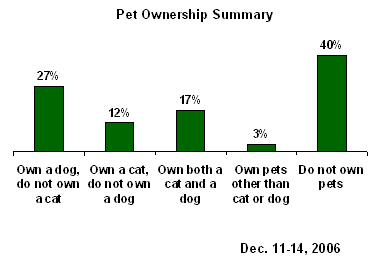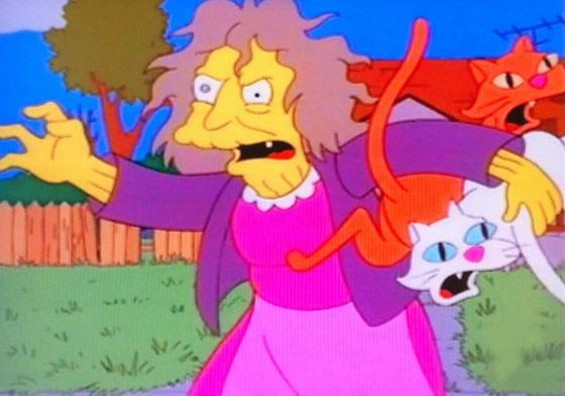It looks like you're using an Ad Blocker.
Please white-list or disable AboveTopSecret.com in your ad-blocking tool.
Thank you.
Some features of ATS will be disabled while you continue to use an ad-blocker.
share:
This one redeem butcherguy, or was made by him...
Source
I wonder how many parents with autistic child had or have cats as pets.
Makes mouse lose fear for cats, does it makes human like those unpleasant creatures too?
Its not only on cats now, I made a topic a while back when they found arctic beluga to have the parasite too, our feline overlords will be our doom.
I am a dog person
A new study has revealed that cat ownership during childhood increases the risk of being diagnosed with schizophrenia later in life. The main reason is the exposure to Toxoplasma gondii, a parasite that is present in cat feces.
Toxoplasma gondii can infect any warm-blooded animal, including humans. Although most people exposed to the parasite show no symptoms while people with weakened immune systems can be seriously affected.
The latest study published in the June edition of the journal Schizophrenia Research compared two previous studies finding a link between cat ownership in childhood with the development of schizophrenia later in life with an unpublished survey on mental health from 1982.
The results were the same, suggesting that cat ownership in childhood is significantly more common in families in which the child later becomes seriously mentally ill.
Source
I wonder how many parents with autistic child had or have cats as pets.
“Toxo,” as it’s often called, is one of the most prevalent parasites. According to the estimated by the U.S Centres for Disease Control and Prevention (CDC), more than 60 million people in the nation may be infected with T.gondii.
The parasite can only reproduce inside the bodies of cats and this works to their advantage because toxo helps them catch prey. When toxo infects rodents, scientists have learned their response to cats is altered and they lose their natural fear of felines.
Makes mouse lose fear for cats, does it makes human like those unpleasant creatures too?
Its not only on cats now, I made a topic a while back when they found arctic beluga to have the parasite too, our feline overlords will be our doom.
I am a dog person
edit on 9-6-2015 by Indigent because: the parasite made me type pleasant when i meant unpleasant :O
not a fan of cats...I always knew those buggers are up to no good.
I knew this was on the horizon when I first heard about toxoplasma parasites about ten years ago.
I'm glad to be alive now when I'm able to enjoy the company of these friends of mine before some jackass starts legislating against them.
I'm glad to be alive now when I'm able to enjoy the company of these friends of mine before some jackass starts legislating against them.
Rubbish.
I have had cats all my life since childhood.
And we are fine.
I have had cats all my life since childhood.
And we are fine.
a reply to: HumansEh
The cat parasite grip on humanity is strong...
I wonder if the ones that saw the dress gold and white were severely exposed to cats during childhood
Thankfully it seems the majority of people is sane and do not own cats

And 30% of domestic cats have the parasite, so there is hope yet
The cat parasite grip on humanity is strong...
I wonder if the ones that saw the dress gold and white were severely exposed to cats during childhood
Thankfully it seems the majority of people is sane and do not own cats

And 30% of domestic cats have the parasite, so there is hope yet
edit on 9-6-2015 by Indigent because: (no reason given)
a reply to: Indigent
Seems a bit farfetched to me. Every one who drinks water (or does not) ends up dying.
That being said, my family owned 11cats when I was younger (all taken in from the streets to give a home) and I'm not any crazier than the next person..
.. (Who said that?)
Seems a bit farfetched to me. Every one who drinks water (or does not) ends up dying.
That being said, my family owned 11cats when I was younger (all taken in from the streets to give a home) and I'm not any crazier than the next person..
.. (Who said that?)
edit on 9-6-2015 by ColdNCursed because: (no reason given)
originally posted by: Indigent
This one redeem butcherguy, or was made by him...
A new study has revealed that cat ownership during childhood increases the risk of being diagnosed with schizophrenia later in life. The main reason is the exposure to Toxoplasma gondii, a parasite that is present in cat feces.
Toxoplasma gondii can infect any warm-blooded animal, including humans. Although most people exposed to the parasite show no symptoms while people with weakened immune systems can be seriously affected.
The latest study published in the June edition of the journal Schizophrenia Research compared two previous studies finding a link between cat ownership in childhood with the development of schizophrenia later in life with an unpublished survey on mental health from 1982.
The results were the same, suggesting that cat ownership in childhood is significantly more common in families in which the child later becomes seriously mentally ill.
Source
I wonder how many parents with autistic child had or have cats as pets.
“Toxo,” as it’s often called, is one of the most prevalent parasites. According to the estimated by the U.S Centres for Disease Control and Prevention (CDC), more than 60 million people in the nation may be infected with T.gondii.
The parasite can only reproduce inside the bodies of cats and this works to their advantage because toxo helps them catch prey. When toxo infects rodents, scientists have learned their response to cats is altered and they lose their natural fear of felines.
Makes mouse lose fear for cats, does it makes human like those unpleasant creatures too?
Its not only on cats now, I made a topic a while back when they found arctic beluga to have the parasite too, our feline overlords will be our doom.
I am a dog person
A similar study won the ignoble prize, givin out for the wildest scientific study, either this year or last.
The studies theory was that a parasite in cats was the actual cause of "cat lady" syndrome. Assuming that (I think the same parasite you mentioned) caused a mental disorder that made people anti social and love cats.
a reply to: Indigent
Alas, I did not do the study, or even fund it.
I am just a (ETA: poor) unlearned yokel in a seemingly cat-filled world.
I have no cats, but there is one in my yard nearly every morning when I step out on the back porch to smoke and drink my coffee.
Alas, I did not do the study, or even fund it.
I am just a (ETA: poor) unlearned yokel in a seemingly cat-filled world.
I have no cats, but there is one in my yard nearly every morning when I step out on the back porch to smoke and drink my coffee.
edit on
b000000302015-06-09T06:34:21-05:0006America/ChicagoTue, 09 Jun 2015 06:34:21 -0500600000015 by butcherguy because: (no reason given)
a reply to: Indigent
Perhaps only RH negative folks like me should have cats?
Just saying...cats arent necessarily the culprit in all cases
genetics.thetech.org...
Perhaps only RH negative folks like me should have cats?
One idea is that Rh negative people may be resistant to some of the effects of the parasite Toxoplasma. This parasite can invade our body and damage the brain, especially in babies.
It looks like Rh negative people may be less affected by this parasite. In areas with a lot of Toxoplasma, being Rh negative might be an advantage. The less severe effects of the parasite may outweigh the effects on pregnancy.
Just saying...cats arent necessarily the culprit in all cases
genetics.thetech.org...
a reply to: Entreri06
Describing the Relationship between Cat Bites and Human Depression Using Data from an Electronic Health Record
Cutting edge science right here
They have the final laugh as independent researchers reached the same conclusions, good for them
Describing the Relationship between Cat Bites and Human Depression Using Data from an Electronic Health Record
Cutting edge science right here
They have the final laugh as independent researchers reached the same conclusions, good for them
edit on 9-6-2015 by Indigent because: or it
may all be a complot against cats
Pet lover here
Cats, Dogs, birds, fish etc.
Parasite or not they give comfort and unconditional love. So, if my cheese eventually slides off my cracker so be it.
Cats, Dogs, birds, fish etc.
Parasite or not they give comfort and unconditional love. So, if my cheese eventually slides off my cracker so be it.
new topics
-
Advice for any young Adult .
General Chit Chat: 8 minutes ago -
Joe meant what he said about Hunter's pardon....
US Political Madness: 56 minutes ago -
Regent Street in #London has been evacuated due to a “bomb threat.”
Other Current Events: 1 hours ago -
It’s Falling…
Philosophy and Metaphysics: 3 hours ago -
Steering the Titantic from the Drydock.
Rant: 6 hours ago
top topics
-
House Passes Laken Riley Act
Mainstream News: 17 hours ago, 24 flags -
Steering the Titantic from the Drydock.
Rant: 6 hours ago, 10 flags -
Hearing more ambulances lately
Medical Issues & Conspiracies: 17 hours ago, 8 flags -
Paramilitary Leaks - John Williams
Whistle Blowers and Leaked Documents: 15 hours ago, 7 flags -
Los Angeles brush fires latest: 2 blazes threaten structures, prompt evacuations
Mainstream News: 17 hours ago, 7 flags -
Joe meant what he said about Hunter's pardon....
US Political Madness: 56 minutes ago, 6 flags -
It’s Falling…
Philosophy and Metaphysics: 3 hours ago, 4 flags -
Some sausage, some chicken, some sauce, some onions and some garlic...and some peppers!
Food and Cooking: 16 hours ago, 3 flags -
Regent Street in #London has been evacuated due to a “bomb threat.”
Other Current Events: 1 hours ago, 2 flags -
Advice for any young Adult .
General Chit Chat: 8 minutes ago, 2 flags
active topics
-
Steering the Titantic from the Drydock.
Rant • 31 • : schuyler2 -
Russia Ukraine Update Thread - part 3
World War Three • 6902 • : Oldcarpy2 -
It’s Falling…
Philosophy and Metaphysics • 2 • : JJproductions -
Advice for any young Adult .
General Chit Chat • 1 • : MagesticEsoteric -
Hearing more ambulances lately
Medical Issues & Conspiracies • 4 • : JJproductions -
Joe meant what he said about Hunter's pardon....
US Political Madness • 5 • : xuenchen -
Meta Llama local AI system is scary good
Science & Technology • 51 • : imitator -
Judge rules president-elect Donald Trump must be sentenced in 'hush money' trial
US Political Madness • 65 • : network dude -
Los Angeles brush fires latest: 2 blazes threaten structures, prompt evacuations
Mainstream News • 19 • : xuenchen -
Regent Street in #London has been evacuated due to a “bomb threat.”
Other Current Events • 1 • : angelchemuel

